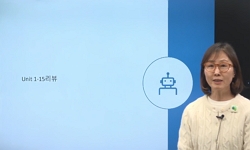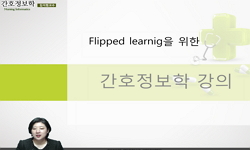This preliminary study is the first in a series of studies aimed at improving the self-assessment of undergraduate translation and interpreting students. Self-assessment is crucial to developing self-directed learning skills and enabling formative ass...
http://chineseinput.net/에서 pinyin(병음)방식으로 중국어를 변환할 수 있습니다.
변환된 중국어를 복사하여 사용하시면 됩니다.
- 中文 을 입력하시려면 zhongwen을 입력하시고 space를누르시면됩니다.
- 北京 을 입력하시려면 beijing을 입력하시고 space를 누르시면 됩니다.

영한 순차통역 학생 자기평가와 교수자 평가 비교 연구 = Self-Assessment vs. Instructor Assessment in English-Korean Consecutive Interpreting: A Preliminary Study on Improving Self-Assessment Accuracy in Fourth-Year Undergraduate Students
한글로보기https://www.riss.kr/link?id=A109407823
- 저자
- 발행기관
- 학술지명
- 권호사항
-
발행연도
2024
-
작성언어
Korean
- 주제어
-
등재정보
KCI등재
-
자료형태
학술저널
-
수록면
1-24(24쪽)
- 제공처
-
0
상세조회 -
0
다운로드
부가정보
다국어 초록 (Multilingual Abstract)
The study looks at the consecutive interpreting performance of two cohorts: eight students (4-5 sessions) from Autumn 2023 and six students (3-4 sessions) from Spring 2024. The accuracy of the students' self-assessments was compared with the teachers' assessments. Three key findings emerged: i) the correlation between student self-assessments and instructor ratings increased progressively from week 1 to week 4; ii) high-performing students' self-assessments were more closely aligned with instructor ratings; and iii) the greatest agreement between student and instructor ratings occurred when rating accuracy.
This initial study sets the stage for future research to develop better teaching methods for self-assessment in translation and interpreting education. The findings suggest several implications for teaching, which are discussed along with plans for longer-term research.
This preliminary study is the first in a series of studies aimed at improving the self-assessment of undergraduate translation and interpreting students. Self-assessment is crucial to developing self-directed learning skills and enabling formative assessment - key components of lifelong learning competence.
The study looks at the consecutive interpreting performance of two cohorts: eight students (4-5 sessions) from Autumn 2023 and six students (3-4 sessions) from Spring 2024. The accuracy of the students' self-assessments was compared with the teachers' assessments. Three key findings emerged: i) the correlation between student self-assessments and instructor ratings increased progressively from week 1 to week 4; ii) high-performing students' self-assessments were more closely aligned with instructor ratings; and iii) the greatest agreement between student and instructor ratings occurred when rating accuracy.
This initial study sets the stage for future research to develop better teaching methods for self-assessment in translation and interpreting education. The findings suggest several implications for teaching, which are discussed along with plans for longer-term research.
동일학술지(권/호) 다른 논문
-
- 한국외국어대학교 통번역연구소
- 방교영
- 2024
- KCI등재
-
『The Pilgrim’s Progress』의 韓譯本과 中譯本에 나타난 비유체(vehicle) 번역 양상 고찰
- 한국외국어대학교 통번역연구소
- 최인숙
- 2024
- KCI등재
-
- 한국외국어대학교 통번역연구소
- 이주연
- 2024
- KCI등재




 KCI
KCI eArticle
eArticle





